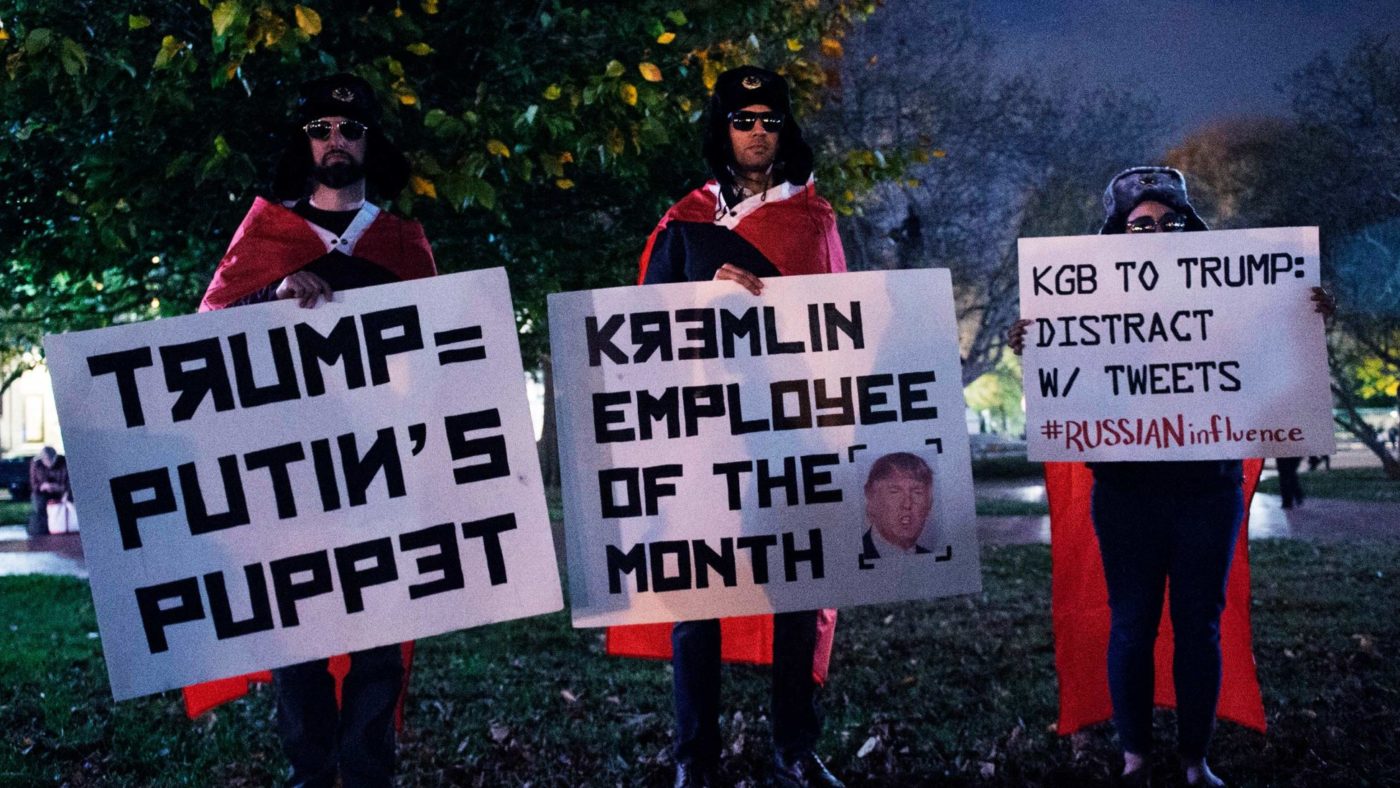For those following the investigation into Russian interference in the 2016 US presidential election, in the immortal words of former US president Ronald Reagan, “you ain’t seen nothing yet”.
With the Democrats regaining control of the House of Representatives, Donald Trump’s relationship with Russia is likely to become a – perhaps the — dominant theme in DC. However, these investigations are fraught with potential dangers for all sides, not just the president.
For those who haven’t followed the saga, it is important to note that this investigation is perhaps the most important one into a serving president in American history. It is — potentially — about whether an adversary of the US succeeded in getting ‘their’ candidate into the presidency. It is about the fealty of that president to his country.
It is also about trust in the media – especially social media – and how populations can be manipulated by AI, by bots and by algorithms – and the ability of nation state states to manipulate the democratic electoral processes of others. These last points concern each and every democracy on the planet, including our own. The organisation at the heart of this Kremlin operation was the GRU, President Putin’s one-stop shop for global subversion, which is now infamous in the UK thanks to the Skripal poisoning case.
As we have done so little to protect out own society from the tsunami of disinformation, this scandal concerns us too. We need to learn from it, but we aren’t doing so.
To recap the basic facts: Special Consul Robert Mueller was appointed to oversee a federal investigation into alleged Russian interference in the 2016 presidential campaign. US intelligence chiefs have unanimously agreed that Russia interfered in that election. Trump this Wednesday sacked his Attorney General, Jeff Sessions, who has been unwilling or unable to find a way to shut the Mueller inquiry down. The president wants the inquiry brought to a close and he wants an Attorney General who will find a way to do that. We can only assume he wants it shut because of what it might turn up.
For those who ask what the fuss is about, it is worth pointing to some of the extraordinary allegations already unveiled by Mueller in indictments laid before US courts. I recommend to anyone who has 20 minutes to spare to go through these breathtaking documents (February’s indictment here and July’s indictment here).
In the July indictment, Mueller’s team argued that Intelligence officers from two GRU sub-units conspired to conduct ‘large-scale cyber operations to interfere with the 2016 US presidential election”. The GRU planted malware on computers used by the Clinton campaign, the Democratic National Committee and the Democratic Congressional Campaign Committee. Overall, Russian operatives stole and leaked some 50,000 emails and documents. Mueller believes that the GRU leaked these files to Julian Assange, originally a hero of the Left but now exposed as the peddler, unwittingly or otherwise, of GRU-stolen documents aimed at destroying Mrs Clinton.
Less well known but equally importantly, the GRU conspirators also allegedly broke into protected computers of individuals responsible for administering US elections and servers for State Boards of Elections (SBOEs) in Iowa, Georgia and Florida to try to exploit ‘vulnerabilities’ in electronic voting systems. And they are accused of hacking into the vendors of election software too.
These hacks raise a vital question: did Russia have the understanding and the ability to rig – presumably electronically – some state electoral systems? Should we assume that any electronic electoral system in the world is now hackable?
The February indictment further alleges that the Russian Internet Research Agency, owned by an oligarch ally of President Vladimir Putin, attempted to interfere with the US political process from 2014 on. The strategic goal was to sow discord. This grand conspiracy was linked with Putin’s broader attempt to use political warfare to undermine the West. Whilst Putin effectively announced a new cold war in his 2007 Munich speech, the attempt to manipulate the US presidential race was probably motivated by a specific desire to punish the West for supporting Ukraine. The election operation was itself part of a larger campaign — ‘Project Lakhta’ — a political warfare programme targeting foreign audiences in various countries, including the US.
So what could happen next?
It is very unlikely that Trump will be impeached, but more and highly damaging information on his relations with Russia – potentially going all the way back to the Soviet era – may become public knowledge. There is likely to be more about his campaign’s links with Russian operatives. These allegations may cross into his financial and personal life. He may well survive electoral and personal scandals – he has survived so many already – but any evidence of criminality linked to financial wrongdoings could fatally wound him.
It certainly looks as though the Democrats will restart House investigations, though this course of action has risks of its own. If the party appear to be running a witch-hunt against the president and engage in a nakedly political fruitless impeachment procedure, they will undermine the credibility of their own investigation. They may undermine Mueller as well, allowing the president to portray himself as the victim of injustice. That option gives Trump an obvious route to firing up his base ahead of the 2020 presidential race.
The Democrats will put themselves in a strong position if they support Mueller’s inquiry, whilst being measured in their responses and offering a clear domestic political agenda. A measured approach will also allow Trump to undermine himself with his own relentless campaign against Mueller.
One final point which Democrats ignore at their peril. The Kremlin supported two candidates in the election, Donald Trump and Bernie Saunders, although the priority was always Trump. Both were seen as outliers who would go against the US foreign policy establishment. So when radical Democrats campaign against Trump, they should remember; the Russians backed their man too.


